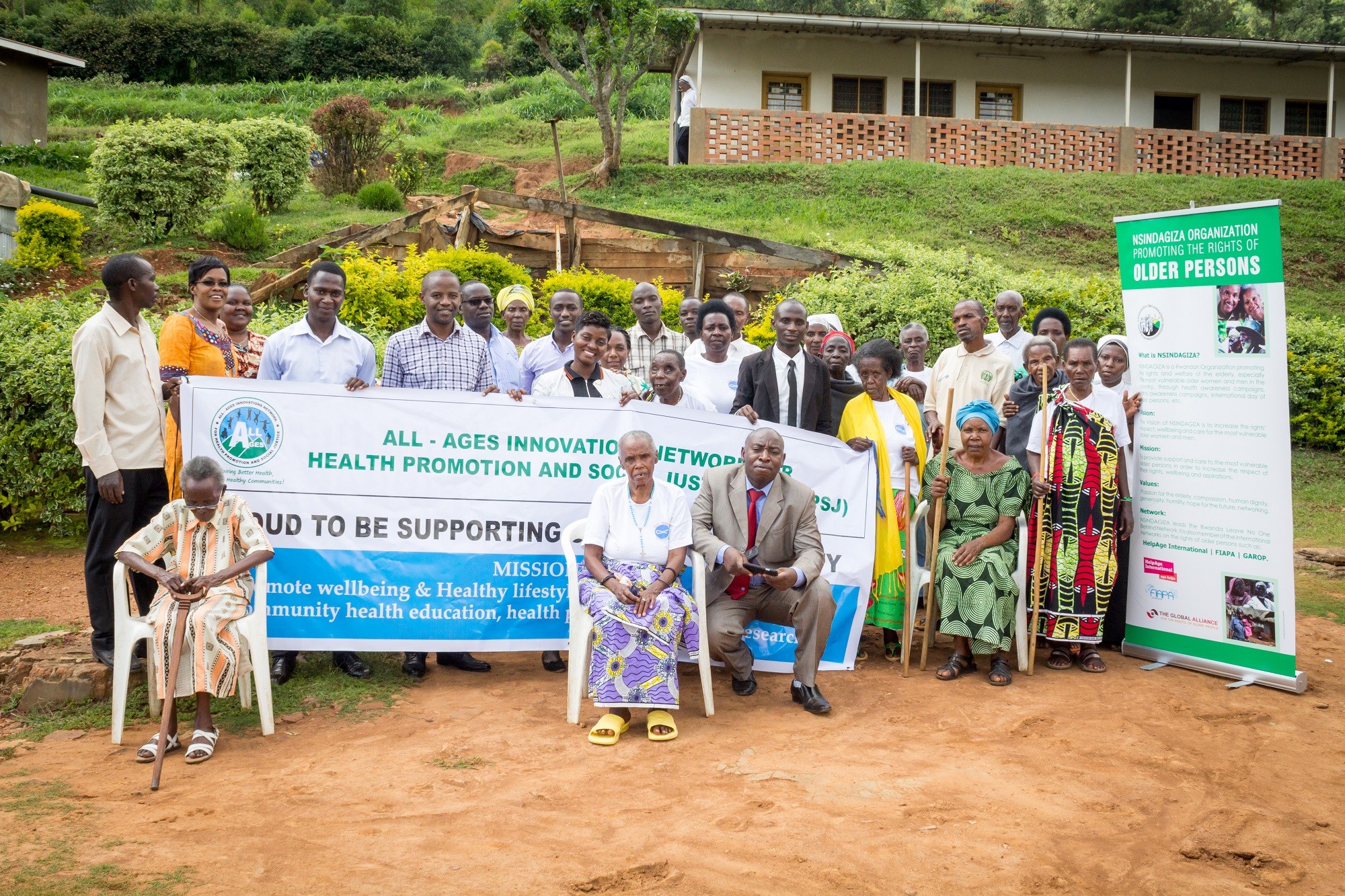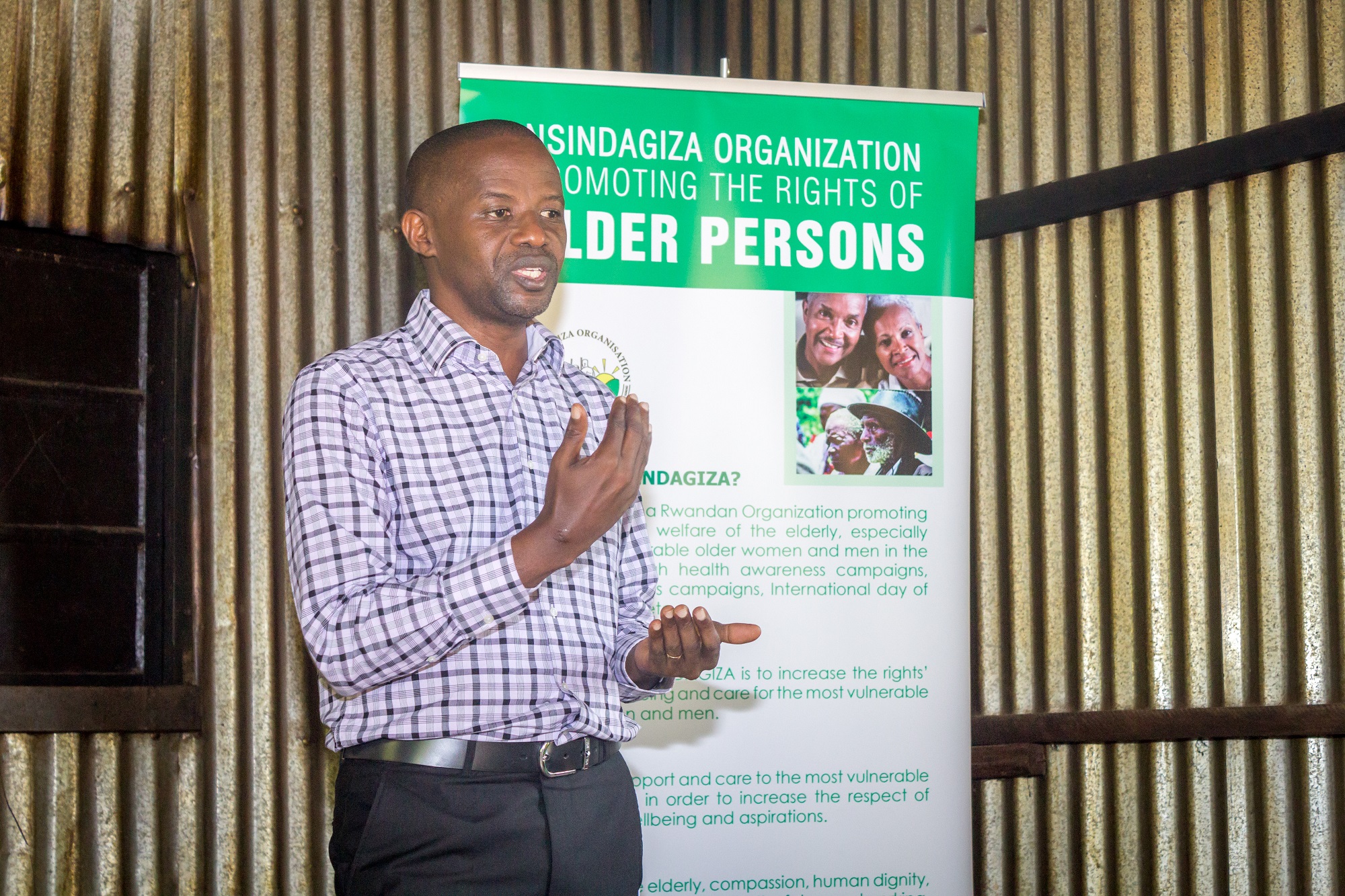
More than 20 years on from the 1994 genocide in Rwanda, many of the country’s older people continue to be affected by it in new and troubling ways.
Hundreds of thousands of people lost relatives or were separated from their family members. They are now reaching older age. But where they would have had support networks, many are now alone, isolated, jobless and neglected. This has had a significant impact on the mental health of older men and women.
Indeed, in rural areas, 15.5% of the population were depressed, according to a 2011 study, yet no action had been taken to help these people.
Why are older people particularly vulnerable to depression?
Rwanda’s unique situation has significantly disrupted family structures and amplified trends common in many parts of the world.
Older age is often accompanied by a loss of support systems due to the death of a spouse, retirement, or a loss of land when it is taken from an older person.
These changes in circumstances mean that doctors and family members may miss the signs of depression. Meanwhile, many of the older people affected do not know that depression is treatable, and even those who do cannot access services easily.
As a result, effective treatment often gets delayed, if it is received at all, forcing many older people to struggle unnecessarily with their mental health.
A national dialogue to leave no one behind
In October 2016, my organisation in Rwanda, Nsindagiza, found that mental health is among the factors restricting older people’s access to the benefits of development. We want to change this, so we co-chaired a leave no one behind national dialogue to support campaigning and advocacy efforts on the implementation of the Sustainable Development Goals (SDGs) across Rwanda – a framework through which there is an opportunity to address the country’s mental health problems.

This meant working with other civil society organisations that support people who are typically excluded from development efforts. We held local discussions and carried out surveys to find out who is left behind in Rwanda, what their concerns are, and how to address the barriers to their inclusion.
Our discussions showed that economic status, age, level of education and mental health all attributed to people not sharing in the benefits of development. While participants recognised that services such as transport and education were being strengthened by the Rwandan Government, food security, shelter, lack of paid work and loneliness among older people remained as obstacles to overcome.
Promoting social inclusion on World Health Day 2017
Given these findings, this year’s World Health Day theme of depression presented a great opportunity to support older people’s mental health in Rwanda.
Nsindagiza visited a residential home for older people to encourage social inclusion, joining up with St Vincent de Paul Society and All-Age Innovation from the University of Rwanda to promote health and social justice for all.
We presented the impact of social inclusion in fighting depression, while the mental health department of the University of Rwanda explained what depression was, its signs and how it can be treated.
Social inclusion ensures people of all ages are treated equally, have responsibilities within their families and communities, and are able to participate in decision-making. This increases a sense of value in a person’s life, which can help tackle depression.
Agnes, a 94-year-old woman whose husband and four of her children were killed during the genocide, was abandoned by the rest of her children when she became older and disabled.
“I felt alone and was always scared people would come and kill me. I always think of my family members who rejected me and refused to come see me,” she said.
“I was depressed until a volunteer from St Vincent of Paul Society visited me and brought me to this centre. Here I feel relieved because I am surrounded by people my age and I am cared for.”
The older people involved in the events said this was the first time they were told depression is treatable, and some of them decided to go to a doctor after finding out.
Unfortunately, this service is not easily affordable because of the long distances some need to travel to see a medical practitioner for treatment. But it is an important step to get older people to understand depression, now we need to ensure the Government makes health services to treat the condition available.
The Rwandan Government must meet its commitments in the SDGs
The Rwandan Government should be extremely proud that it is recognised among the best performing countries in the implementation of the Millennium Development Goals, the SDGs’ predecessors. It even resulted in Rwanda being nominated to host the regional SDG Center for Africa. However, as with all countries, more work needs to be done to ensure the most vulnerable and marginalised are reached and all 17 goals are met by 2030.
When it comes to mental health, goal 3 – “ensure healthy lives and promote wellbeing for all at all ages” – was a priority within our national dialogue discussions, especially when we consider its language.
To ensure healthy lives and a positive mental wellbeing for everyone, governments and their health ministries must consider the needs and vulnerabilities of older people that can make social inclusion a challenge.
States have taken an important step towards recognising mental health as a priority within the global development agenda. We now want to see Rwanda’s Government put in place prevention measures. They should sensitise families and communities to support isolated older people, and arrange support groups for those with mental health challenges to share their feelings.
Words are, however, not enough. If governments, including Rwanda’s, are to honour their promise to reach the furthest behind first, loneliness and depression among older people must be addressed.
